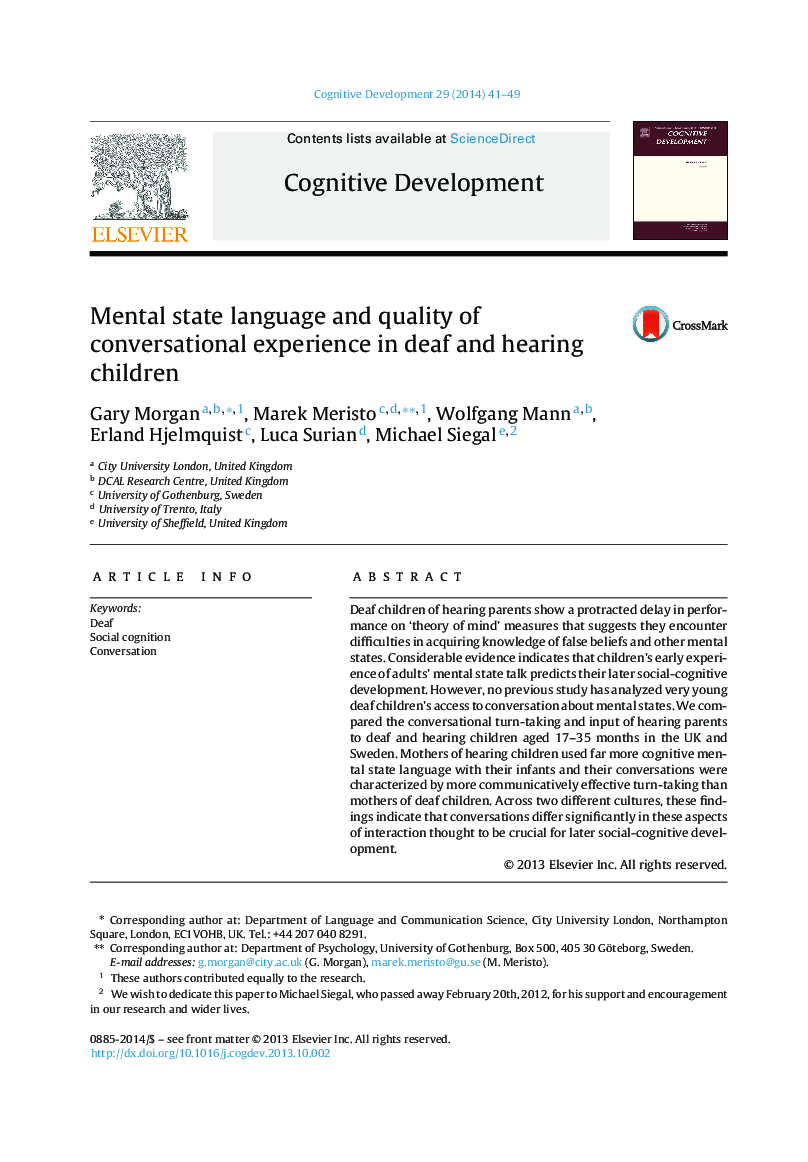| Article ID | Journal | Published Year | Pages | File Type |
|---|---|---|---|---|
| 916506 | Cognitive Development | 2014 | 9 Pages |
•Recruited large sample of young deaf infant and children in two countries.•Did close examination of early interaction using quantitative methods.•Showed clear differences between deaf and hearing participants in key areas.•Provides strong indications for future development of social cognition in deafness.
Deaf children of hearing parents show a protracted delay in performance on ‘theory of mind’ measures that suggests they encounter difficulties in acquiring knowledge of false beliefs and other mental states. Considerable evidence indicates that children's early experience of adults’ mental state talk predicts their later social-cognitive development. However, no previous study has analyzed very young deaf children's access to conversation about mental states. We compared the conversational turn-taking and input of hearing parents to deaf and hearing children aged 17–35 months in the UK and Sweden. Mothers of hearing children used far more cognitive mental state language with their infants and their conversations were characterized by more communicatively effective turn-taking than mothers of deaf children. Across two different cultures, these findings indicate that conversations differ significantly in these aspects of interaction thought to be crucial for later social-cognitive development.
